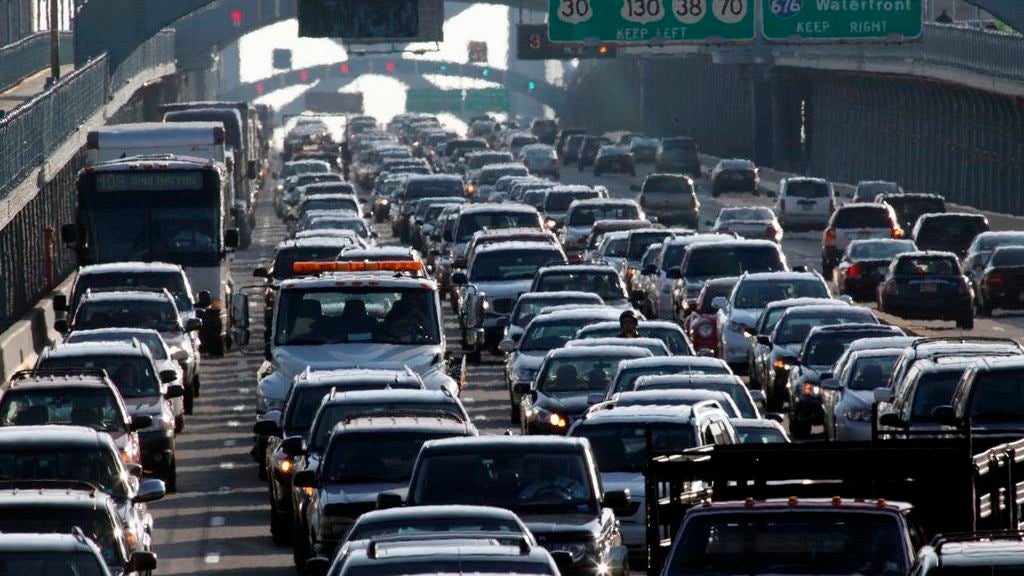Philly residents losing their driving zeal as more go car-less

Traffic in Philadelphia. (AP Photo, file)
Don’t have a car? Join the club. In Philadelphia, as in other cities, the trend of going car-less is accelerating.
A new study from the University of Michigan Transportation Research Institute ranks Philadelphia No. 4 among large U.S. cities where people are living vehicle-free.
The Michigan study looked at the number of households without vehicles, said Drexel University sociologist Mimi Sheller who directs the Center for Mobilities Research and Policy.
“We know that there is an apparent increase in the millennial generation, especially white, college-educated people settling in parts of Philadelphia,” she said. “And we know that they they have a preference for not owning a car.”
It’s a small enough slice of the population that it hasn’t transformed Philadelphia, Sheller said.
“But it certainly is contributing to this increase in households without vehicles. And certainly it’s a trend in the big cities,” she said. “In particular cities like Washington, New York, Boston and San Francisco are all part of this wider trend that Philadelphia is sharing in.”
The study shows that in Philadelphia, vehicle-less households increased by 0.2 percent from 2007 to 2012. So it’s not like empty parking spaces suddenly will appear all over the city.
By way of comparison, the car-less population in New York and Washington, D.C., grew by 2.4 percent.
Study author Michael Sivak said his research indicates that, “per household, per person, and per driver — we now have fewer vehicles, we drive each of them less, and we consume less fuel than in the past.”
Some of those car-less Philadelphians are turning to other modes of transport, including trains. In 15 years, regional rail ridership has increased 50 percent.
The change is taking off on two wheels too. The Bicycle Coalition of Greater Philadelphia said, from 2000 to 2009, bicycle commuting increased 151 percent.
WHYY is your source for fact-based, in-depth journalism and information. As a nonprofit organization, we rely on financial support from readers like you. Please give today.




